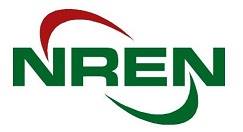Nepal is now home to a dozen research institutions, ten universities, more than thirteen hundred colleges and more than two dozens teaching hospitals across the country. Providing fastest communication services and comprehensive access to state-of-the-art applications and resources through a non-profit national Research and Education Network (REN) to universities, colleges and schools as well as health, agriculture, science, technology and government institutions have become a global phenomenon. Nearly all countries around the world have REN as an integral part of their national education and research plan. Alliances have been developed for regional, continental and inter-continental cooperation in research and education and high-speed transfer of educational and scientific data. This is part of a plan to accelerate learning and research in participating countries.
NREN operates as a national collective of education, research, and government institutions to offer high-performance network at a low cost. This requires building, operating and administering high-performance national backbone for data network and interconnecting its member institutions. On it, NREN ought to maintain servers, routers, switches, network management devices, application platforms, data centers, computing centers, rented dark fiber from commercial companies and satellite communication channels as needed to render its services. Purpose of this complex undertaking is to fuel education, research and innovation in Nepal. This is a federated approach to providing high-end enterprise applications and services, including virtual university, online courseware, content management, central library and scholarly publishing, virtual laboratories, remotely controlled laboratories and test-beds, email, multimedia communication, supercomputing, and cloud computing.
NREN offers an opportunity to Nepal for catching up with the world in the realm of education and research, from primary to the advanced level. It not only connects institutions within Nepal but with education and research institutions throughout the world.
We can, therefore, leapfrog from isolated libraries with neglected bookshelves with old books to the latest digital library developed by national and international consortiums, from no access to journals and research publications to their one-click access, and from no access to expensive educational, scientific and technological resources to their affordable to access. All this would be made economical by means of federated uses of services and resources. We can offer computing services, knowledge services, digitization of contents of libraries and archives of Nepal, national repository and search engine for educational information, and other network services.
Nepal can also make its Open University and Open School initiatives successful by allowing Nepalese learners to participate in distance education, video conferencing, offering MOOC services, real-time participation in lectures and seminars, over a high bandwidth network, co-develop and co-use of educational resources and collaboratively advance research. Nepal can build a stellar platform for continuing education, anywhere and anytime education. The country can counter brain-drain, outmigration, and export of youth as low-wage laborers.
A national academic REN backbone serving the universities, institutes, colleges, schools, hospitals, non-profit and charitable organizations, and research institutes all over Nepal would benefit not only professors, researchers, teachers and students but the whole nation through the preparation of its people for digital economy and innovation in the digital world.
